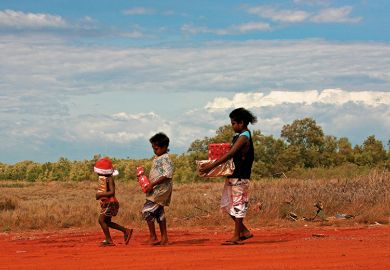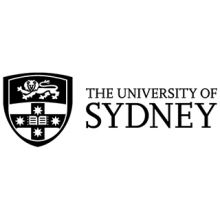Australia’s oldest university has secured the biggest philanthropic contribution in its 175-year history with a A$100 million (£50 million) donation to boost disadvantaged women’s enrolments in science, technology, engineering and mathematics (STEM).
The bestowment from Bangladesh-born entrepreneur Robin Khuda will bankroll a three-pronged programme over 20 years. An “outreach” tier will cultivate interest in physics, maths and engineering among up to 40,000 junior high school students in Sydney’s western suburbs, through “curriculum-aligned” activities in schools and on the university’s campuses.
A “Khuda Academy” for 1,200-plus young women in the last two years of high school will offer group tutoring, mentoring, STEM activities and an annual bursary.
And more than 300 graduates will be guaranteed places at Sydney as “Khuda scholars” and receive specialised mentoring, support and accommodation funding. The first cohort is expected to start in 2027.
Khuda, who became a tech titan after arriving in Australia at the turn of the century to study accounting and business, said he wanted the programme to function as “a game-changing template” for others to adapt and scale up.
His vision was to create a “cohort effect” – a critical mass of female STEM leaders and alumni acting as role models for other women. Khuda became a diversity in STEM advocate after struggling to find women for technical and management roles at his first data centre, which opened in western Sydney in 2017.
The company now has 11 data centres in Australia, Hong Kong, Japan, Malaysia and Singapore, with more on the drawing board. In December his company AirTrunk was bought out in a A$24 billion transaction said to be the largest-ever data centre deal.
Khuda said he wanted to “give back and make a long-term positive societal impact” through his family foundation, which he established in 2020. “It is a long-term programme and its benefits will multiply over time,” he said.
“Western Sydney, compared to other areas of Sydney, hasn’t had the same level of educational support for students to pursue an early interest in science and technology.”
Sydney vice-chancellor Mark Scott said the foundation and university had worked together to create the programme. He said the donation aligned with the university’s “Sydney in 2032” strategy, which includes an aspiration to develop educational offerings in western Sydney. “The region is a hub of economic and educational opportunity that can drive the nation forward,” Scott said.
Women comprise just 20 per cent of domestic enrolments in engineering and related technologies and 22 per cent in information technology, according to the latest available statistics. Western Sydney communities predominate among the least socio-economically advantaged quartile of the Australian population, from which just 15 per cent of domestic higher education enrolments are drawn.
Khuda’s largesse puts him on a rollcall of the most generous donors to Australian universities. Philanthropists Graham and Louise Tuckwell committed A$200 million to bankroll an Australian National University scholarship programme, while American businessman Chuck Feeney gave more than A$100 million to the University of Queensland to establish research institutes and relocate an arts museum.
Canberra’s Snow family has pledged over A$100 million to support promising early and mid-career biomedical researchers. Mining magnate Andrew Forrest and his wife Nicola allocated A$65 million towards scholarships and postdoctoral fellowships in Perth universities in 2013, and have since donated considerably more towards social and scientific causes.
But some equity experts believe elite universities should avoid scholarship schemes that cherry-pick top-performing students from underprivileged areas.
Register to continue
Why register?
- Registration is free and only takes a moment
- Once registered, you can read 3 articles a month
- Sign up for our newsletter
Subscribe
Or subscribe for unlimited access to:
- Unlimited access to news, views, insights & reviews
- Digital editions
- Digital access to THE’s university and college rankings analysis
Already registered or a current subscriber?










